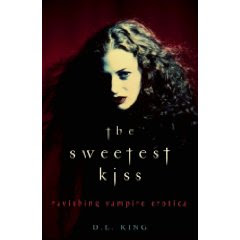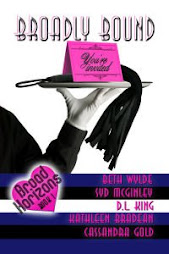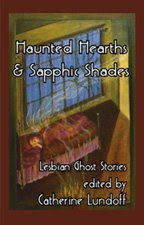Since the answers have stopped coming in on my last question, I have a new one for you. Chime right in under comments, or send me the answer via e-mail and I'll link to your site and current project.
Out of the Mouths of (Like, Total) Babes:
In first and even limited third person, we have the ability to use internal dialog to reveal our main characters. But what about the other characters? How important is dialog in showing who they are? (Alternately - how do you use that as a tool?)
Sunday, April 27, 2008
Subscribe to:
Post Comments (Atom)















.jpg)











5 comments:
Dialogue is extremely important to me when developing characters. How they speak, the vocabulary they choose to use, even the order of their words all reveals something about what type of person they are and how they react to things and events. It's often the only clue I have to a secondary character's inner psyche. I don't like long chunks of exposition, so dialogue is usually essential for breaking up paragraphs like that.
KB: I'm adding Tory's info here.
Tory lives and works in southern California, where she spends a lot of
time around firemen. She visits the beach frequently and wears flip
flops even in the winter. Tory likes television, salted pistachios in
the shell, and chenille socks. She dislikes cauliflower, not being
able to find the right shoes in the morning, and not having enough
free time. She shares her space with numerous pets, including but not
limited to cats, dogs, and tortoises.
She is currently working on a piece for an anthology titled Kegs and
Dorms, which involves, you got it -- college boys. She has tentative
plans to start work on a sequel to her popular novella Tinder, a novel
involving race car drivers, and some fun things with co-writers.
--
Stems and Petals
http://torytemple.com
Tory is absolutely right that dialog is extremely important in revealing secondary characters' psyches and morivations. It's the only tool we have besides their actions to show who they are.
Of course, in long book with a complicated subplot, it's possible to use some secondary character POV, but in a short story or novella, it's better to limit the point of view. Then write sequels about the secondary characters. :)
Lyndi Lamont
http://www.lyndilamont.com
http://flightsafancy.blogspot.com/
This is a very interesting question, and I find myself agreeing with Tory in most ways, although... I also find that some of a secondary character's well, character, can be developed and shown-- or at least hinted at-- by how the main characters perceive them.
Does this person who is a focal point of the story find this more minor person smart, funny, good, bad, annoying, etc.
I enjoy that sort of exploration into secondary characters, myself, because much like in real life, it's entirely possible for the (a) primary to be entirely wrong.
Dialogue is just as important, though (to get back to the actual question). The words a charcter chooses to express themselves, as well as things like tone and expression, make a huge difference.
A character can seem to be ignorant and foolish, yet if they regularly use words that someone who was actually that sort of person would NOT use, it could definitely be a hint that all is not as it seems.
Not sure if that's an actual sense-making answer, but there it is. LOL
~Tis
Dialogue is a very major key to some characters. But Action can reveal as much.
I just finished a novella with tight third person PoV. Everything is through Matt's perception.
Catherine, the saloon owner, sounds like one would expect. She makes Matt pay up-front when she finds out there's a price on his head. But, she's also the one who comes up with temporary solutions, and feeds him a free and fine lunch before the showdown.
Post a Comment